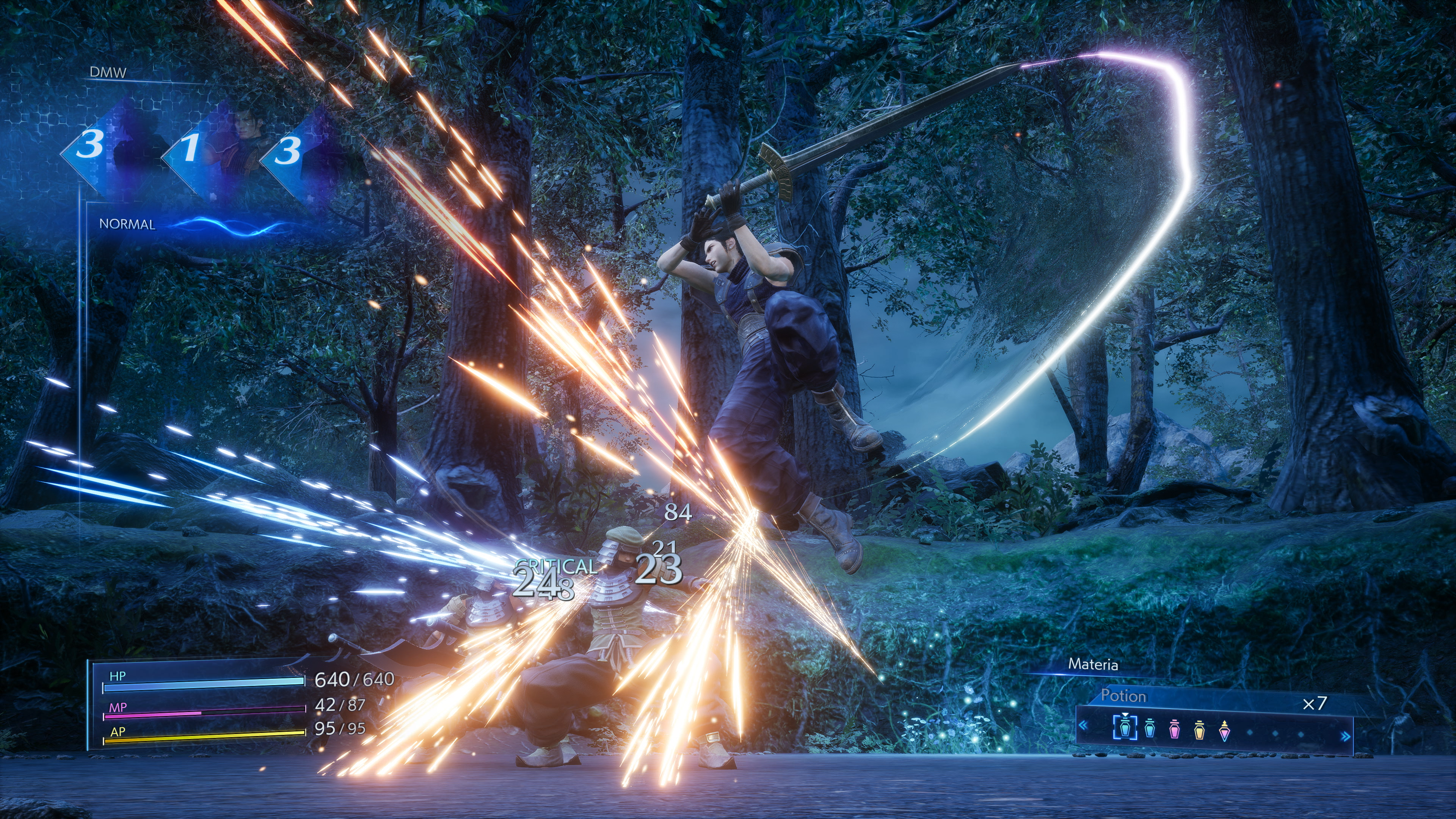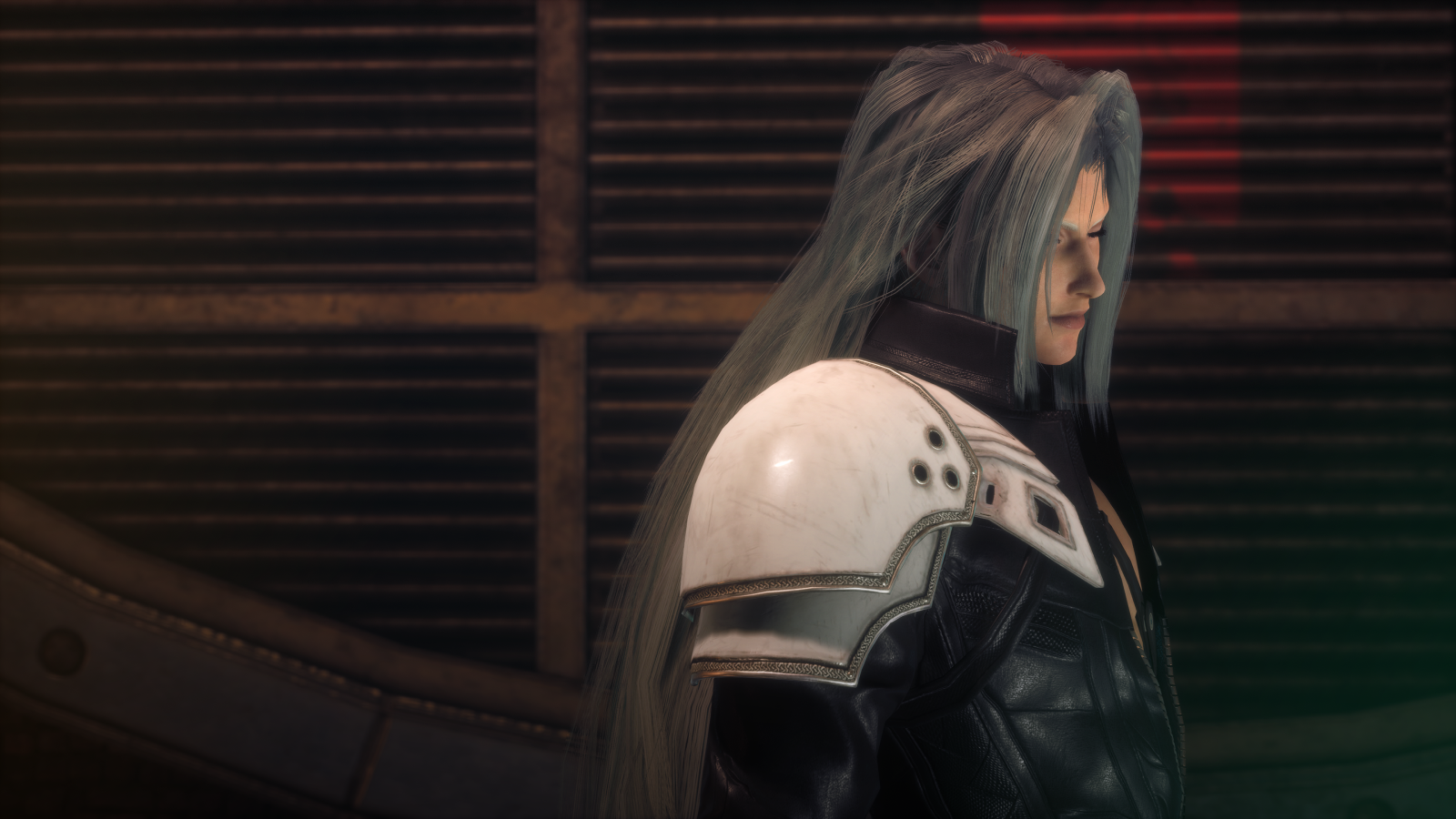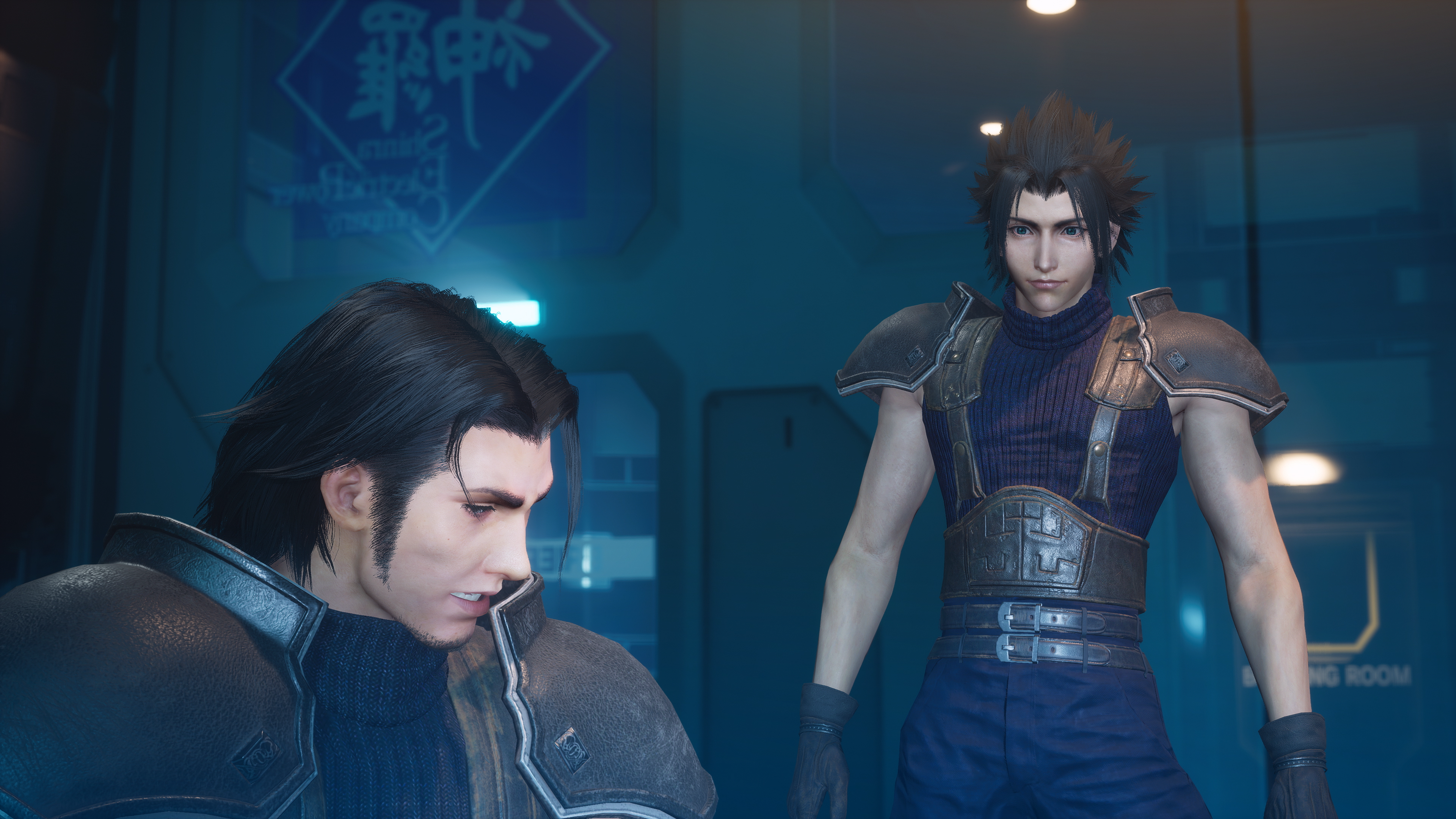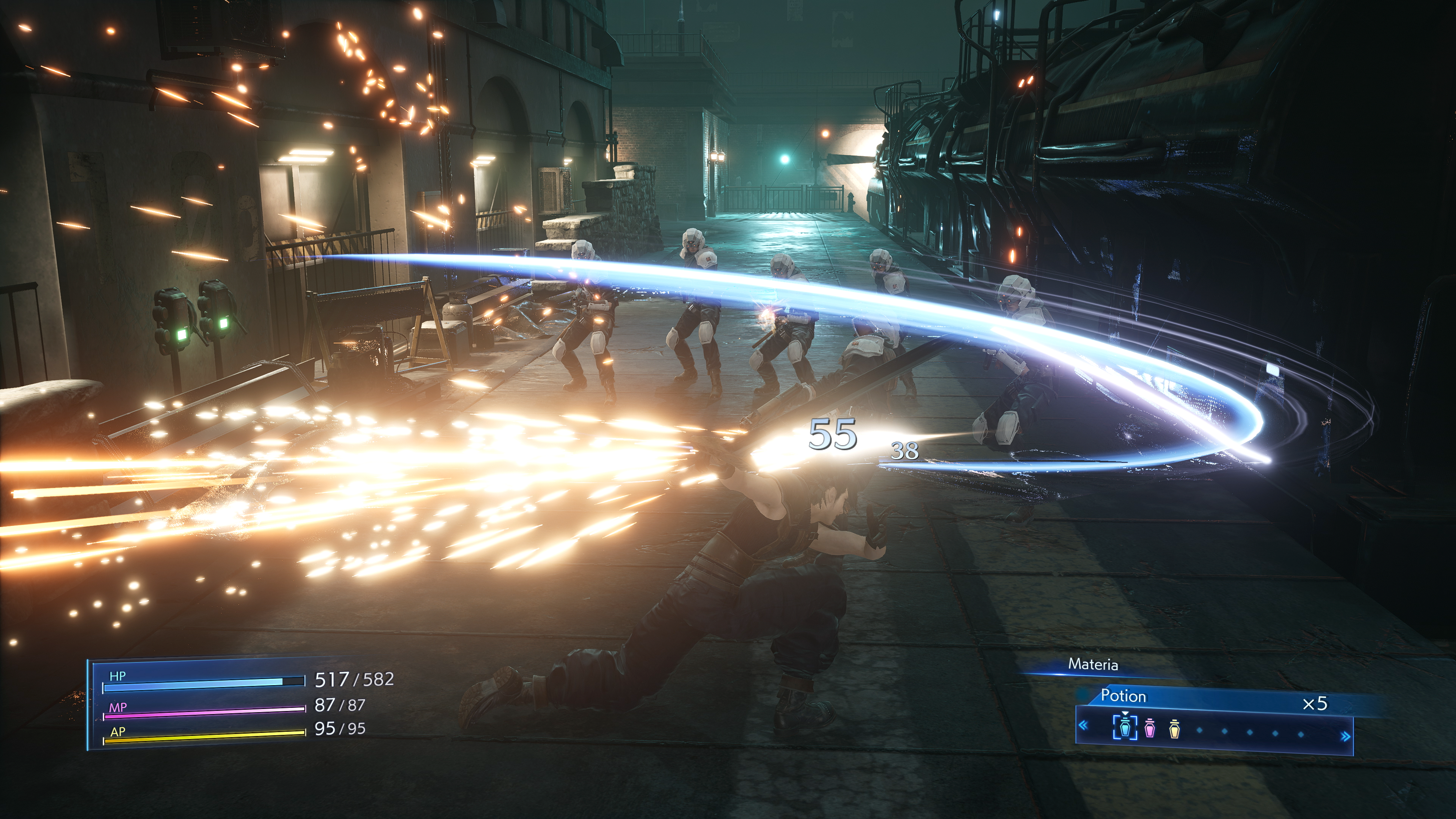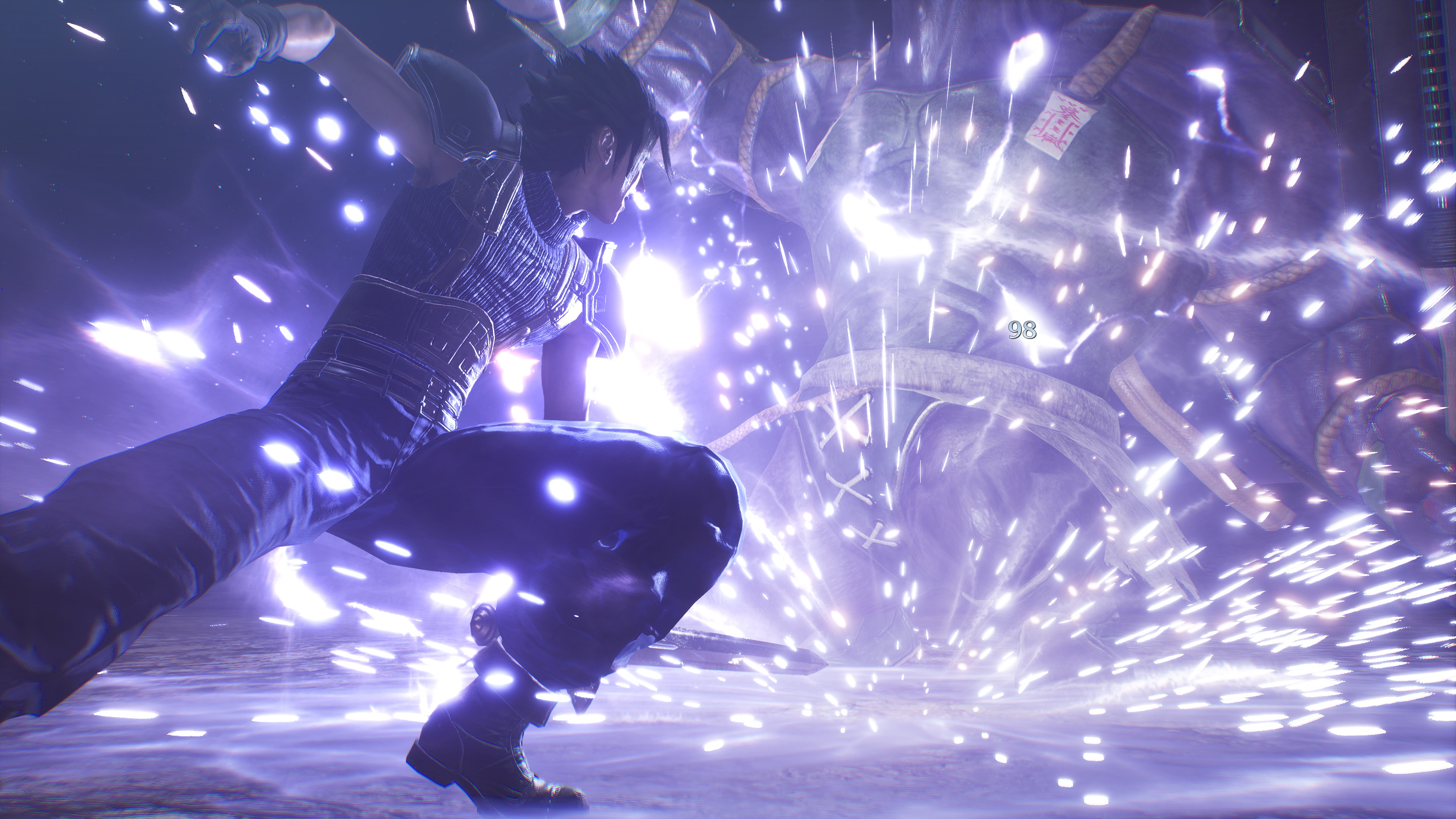Since then, fans have been speculating that Crisis Core’s story will have increased significance in the wake of Remake. The release of Crisis Core: Final Fantasy 7 - Reunion between Remake games surely offers a chance to recontextualise its story and characters. Of course, the team at Square Enix are keen not to spoil any forthcoming plans, but it’s a fair assumption that Zack - the star of Crisis Core - may have a bigger role to play in the trilogy’s future. Intriguingly, a remaster of Crisis Core was actually considered right back at the start of the Remake project, although development only began in the middle of creating the first Remake game. “If you played Remake, or the original, you’ll probably know that Zack is in the first Remake game where he doesn’t appear at that point in the story in the original Final Fantasy 7,” executive producer Yoshinori Kitase told Eurogamer in a new interview. “So he’s featured more than he was. We thought that people who were starting the story there would really want to know more about this character.” The main reason for Crisis Core Reunion, then, is to re-introduce its lead character to a new audience. Simply put, not enough players experienced it the first time round. Released exclusively for Sony’s PSP back in 2008 (in Europe), it’s a prequel to the original game that centres on SOLDIER member Zack Fair, delves into the war between the Shinra corporation and Wutai, and offers further backstory on iconic villain Sephiroth. Remastering the game for current consoles also provides an opportunity to refresh existing Final Fantasy 7 fans and plug the gap between the main Remake games. “There are obviously gaps between the main titles - there are three years I think in the end between Remake Part One and Rebirth - so in order to give the fans opportunities to see more Final Fantasy 7 and experience the universe again in those gaps, we wanted to have some more games in there,” says Kitase. Producer Mariko Sato assures that this remaster is a faithful reproduction of the original story without additions to the narrative, despite that extra Reunion in the title. Changes have been made, however, to the battle system. “The concept behind it is to change the battle system so it feels a lot more dynamic, a lot faster, and make it feel a lot more like the combat in Remake does,” says creative director Tetsuya Nomura. Sato explains further: “We really did try and merge the feeling of a modern action game with the original experience that you got from Crisis Core, to make it feel like, even for modern players coming to it now, it doesn’t feel old fashioned, it feels really in line with the kinds of things people expect from modern games.” Three major changes have been made to combat. The first is that Zack’s basic sword attacks can be tied together as combos rather than being individual button presses. Secondly, magic and abilities can now be set to one button shortcuts for use instantly. And thirdly the Digital Mind Wave feature has been reworked so that limit breaks and summons are still randomised through a slot machine, but can be stored for use when the player needs. Oh, and for fans of Sephiroth’s hair care routine, Sato confirmed that all incidental text from the original has been retained. The game is set for release this winter across multiple platforms, in contrast to the PlayStation console exclusivity of the core Remake project. It’s really about bringing this game to as wide an audience as possible, regardless of whether they’ve played Final Fantasy 7 Remake or not. “There’s no real requirement that we have to align with the Remake series,” says Kitase. “It’s not decided on a series basis, it’s basically each individual title will be assessed for which we think the best platform and the best audience for it will be.” Following the original release exclusively on PSP - and the limited availability of the handheld nowadays - the team made the decision to go multiplatform. “We wanted to expand [the audience] and allow as many people as possible around the world to play this game on whatever platforms they have,” says Kitase. Those changes to the battle system should entice existing fans back to the game, as well as the new voice acting. Nomura confirms the game is now fully voiced (unlike the original, which only featured voices in certain scenes). The English language voice track has also been recast, to align it with the same actors who worked on Remake. “I think for people who have played the original, there are a lot of differences that they will experience,” says Nomura. “I’d love people to look into and enjoy what’s changed and how it’s been updated.” He adds: “It will feel quite fresh and different.” It’s new players, though, who will certainly benefit the most from this remaster - particularly with the narrative. “Certainly the story itself of Crisis Core from the original release and over time, I think it’s stood the test of time,” says Nomura. “It’s something that is very highly regarded by people. And when I look back over the story and how it’s put together, there are not many faults I can find in it really. I think it’s still a very complete and almost perfectly put together story in a lot of ways. “I hope [new fans] can pick up on the same things that the original generation of fans did.” He continues: “I think if people do play it, I’d love them to go on and want to know even more about the universe and dig deeper and go on to play the Remake series and see how [Zack] fits into the events afterwards.” With so many Final Fantasy 7 games on the go - the Remake project, Crisis Core Reunion, Ever Crisis, First Soldier - Square Enix has a lot to juggle when creating a consistent world and story. It’s an issue Nomura says he understands and now oversees. “On the original Final Fantasy 7 Remake I concentrated very much on that one game, but after we’d finished that I moved my position really to being the creative director for the overall Final Fantasy 7 series,” says Nomura. “Obviously now the number of staff internally who were there and who worked on the original Final Fantasy 7 25 years ago is quite limited, there aren’t many of us left. So it’s important to have that continuity and make sure all the titles feel like Final Fantasy 7 games. “Then we have all the individual creators on the teams and they’ve got their ideas of what they want to do with each of their games and I look over that and work out if that fits within the overall bracket of Final Fantasy 7 and balance the new and the continuity, look at each case by case with their new ideas.” Kitase adds: “I think we’re handling that very well. Our main scenario writer, Mr Nojima, he’s working on all of the games in the series writing the scenarios, or overseeing, editing and managing those too. “So in terms of the gameplay and the platforms the games are on, they may all be slightly different, they’ve all got their different tastes and mechanics. In terms of keeping it grounded in the Final Fantasy 7 universe, the story and the lore, we’ve got all those guys who are in charge from the top level overseeing everything. I’m very confident we can keep everything coherent.” Crisis Core Reunion may not be a reworking on the scale of the Remake project, but it does similarly present an opportunity to bring that story to a new audience who either missed out first time, or have been lured into the series more recently. As for the future of Zack, there’s still another year until Rebirth to continue speculating. Crisis Core: Final Fantasy 7 - Reunion is due for release this winter across PlayStation and Xbox consoles, Nintendo Switch, and PC via Steam.
